Everything You Need to Know About Kids’ Anxiety
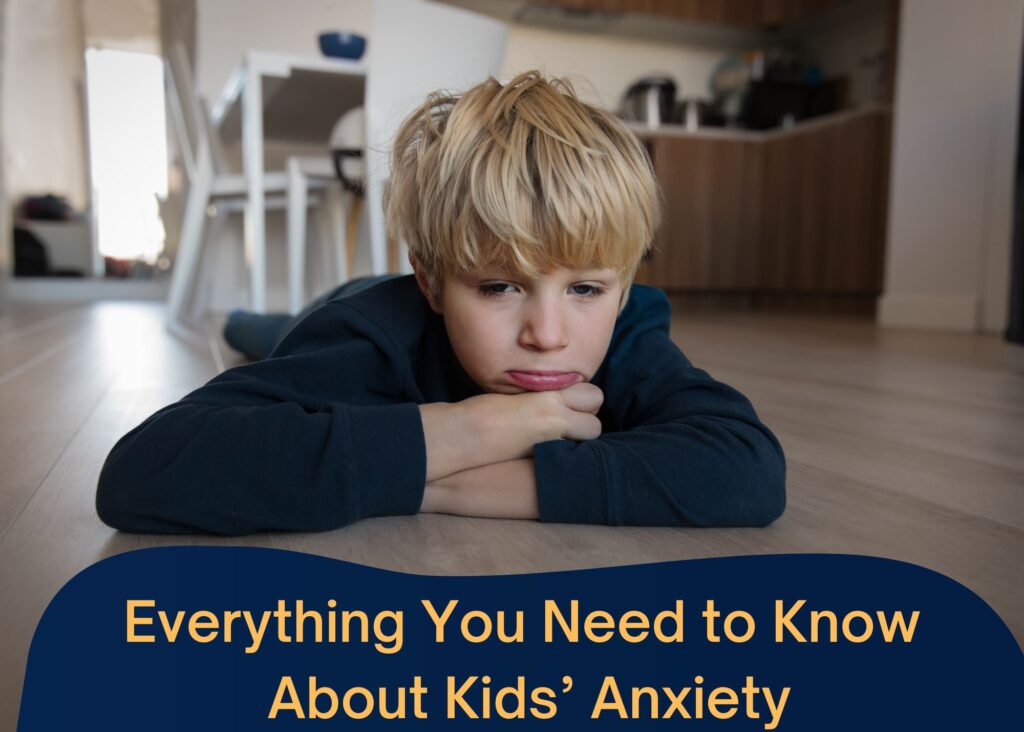
Childhood is supposed to be carefree. Only laughter, toys, and many years of joy. But, unfortunately, kids can also suffer from stress and other psychological issues that occur to them despite their young age. And anxiety is one of them.
It makes kids feel insecure and worry all the time about nothing. No wonder, modern psychologists` efforts focus on helping kids with anxiety. But how to understand that your little one has an anxiety disorder and what to do?
How to Help Children with Anxiety?
Many kids face anxiety nowadays, and their number is growing. According to JAMA Pediatrics, there was a 24% increase in diagnosing anxiety disorders in kids.
The worst thing is that 20% of boys and girls don’t receive the mental health services they need. The reason is that not all parents see the problems in their children or just suppose that they can grow out of anxiety.
Before getting to the point, let’s figure out what anxiety is, and what the symptoms are. Sometimes parents can confuse natural anxiety with anxiety disorders. Parents should know how to talk things over to know what’s bothering their kids.
What Is Anxiety?
According to the Anxiety Disorders Association of America, anxiety is a normal part of childhood. It becomes an issue, though, when kids are afraid of performing such actions as:
- visiting different places;
- raising a hand at a lesson;
- taking part in kindergarten activities;
- making new friends;
- asking questions, etc.
If kids cannot cope with such tasks, it may be a sign that they suffer from an anxiety disorder.
Normal anxiety in fact is a temporary feeling. For example, a kid has seen a scary film and cannot fall asleep. If he doesn’t have any other changes in behavior and reports good sleeping quality the next night, it’s Ok. Anxiety disorders, in turn, cause constant changes in one’s behavior, significantly impairing the quality of life.
Types of Anxiety Disorders
Toddler anxiety as well as other kid anxiety can be of different types. The most common are the following ones.
Generalized Anxiety Disorder
It’s very insidious because kids face anxiety everywhere and about everything. They`re not sure:
- if a trip will be OK;
- whether they’ll succeed in a competition;
- whether their friends will come to a party;
- if their parents will come back for them when leaving them alone;
- whether they know how to apply self-help, etc.
Kids with GAD have low self-esteem and often seek approval, being unable to come up with their own decisions. Moreover, they are constantly worrying, oppressing their mental health.
Social Anxiety Disorder
The synonym is social phobia. Children who suffer from it report being afraid of judgment. They tend to think they look foolish in front of others, especially peers. In advanced cases, children refuse to go to a kindergarten and participate in activities that presuppose many people gazing at them.
Unless parents take it into account and fix the problem, children can grow up insecure and notorious. Furthermore, they`re more subject to depression or other psychological disorders.
Selective Mutism
It’s a problem parents often cannot think of. A kid may be easy-going among his siblings but modest at school among his classmates. As a rule, parents learn about it from other people, who can look after the kid when he’s out of his comfort zone.
Separation Anxiety
The Separation Anxiety Disorder in Youth article states that approximately 50% of young patients are diagnosed with such a disorder. Kids become nervous and can’t stand the separation from parents or other close ones even if it takes several minutes.
For that matter, toddlers can experience anxiety about being far away from their parents indeed. But if preschoolers or young students cannot calm down on their own or with other people, that’s a reason to seek help from a doctor.
By the way, children may be distracted from their feelings if parents know how to help a child with anxiety. That includes a meaningful explanation of how long they should be on their own and when their parents will return. But if your child worries too much, probably, he’s experiencing separation anxiety.
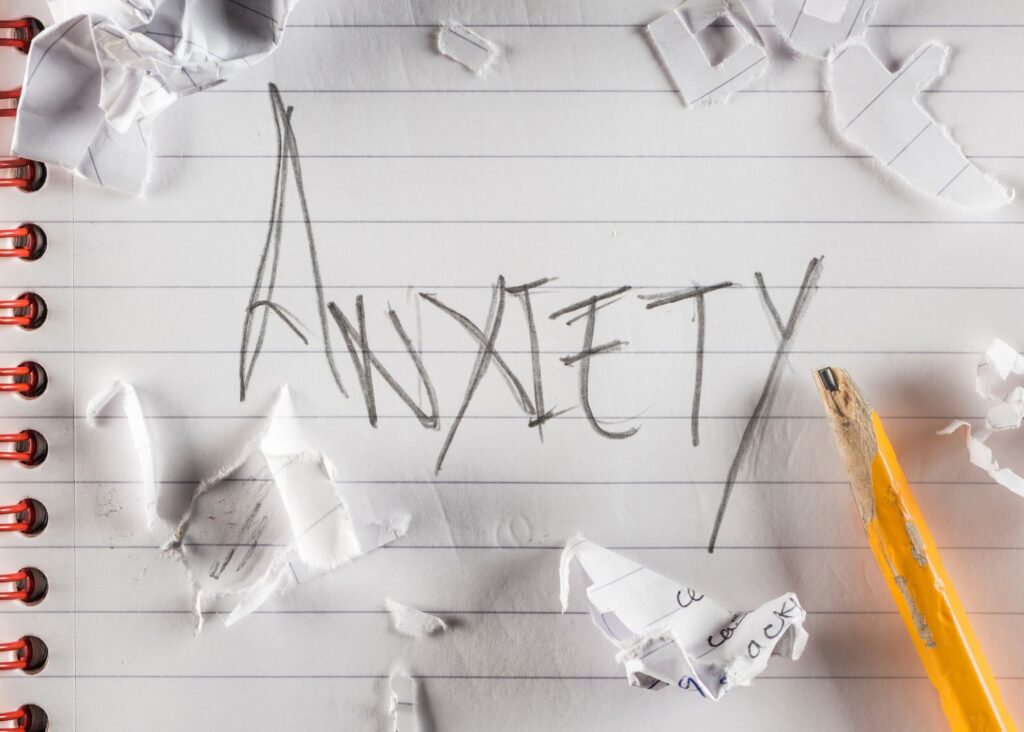
Obsessive Compulsive Disorder
It’s one of the most time-consuming disorders because children waste time performing unnecessary rituals; checking a bag six times a day, washing hands each time you touch something, etc. As a rule, such young children have parents who are too demanding and have high expectations.
Phobias
Kids can also suffer from different fears. It can be:
- canine phobia;
- claustrophobia;
- agoraphobia (the fear of being in open and crowded spaces), etc.
First, they encounter a trigger, experience fear, and then the avoiding behavior begins. It means a dread of being in the same situation again.
What Are the Symptoms of Anxiety?
Moms and dads know better what their kids look like when calm or sad. Thus, caring parents can notice changes in their kids’ behavior. But it’s always better to look closer if you notice any traits of anxiety.
The most common symptoms are:
- Getting upset several times a day or a week;
- Bad sleeping quality;
- Depressed mood;
- Compulsive behaviors;
- A panic disorder (accelerated heartbeat, hyperventilation, lack of air, gagging, sweating, etc.).
- Avoidance behavior when a kid refuses to see certain people or animals or go to some places;
- It’s difficult for a child to communicate with peers. He’s too shy and indecisive;
- Constant meltdowns;
- A kid becomes irritated and scared when being left alone, etc.
If you see one of these symptoms, it would be better to see a child psychologist or, at least, try to help a child yourself. But a professional point of view is significant.
How to Explain Anxiety to a Child?
Tell your kid that it’s Ok to be scared and everyone feels it occasionally. We cannot see anxiety, but we can feel it. Give a kid some examples such as stomach ache, trembling, accelerated heartbeat, depressed mood, etc.
Then, ask your little one if he has ever experienced something similar. You can use various worksheets to help your kid understand the very notion better.
Tips for Dealing with Anxiety
Child psychologists can apply different techniques according to their client’s needs. But you, as a parent, can make the life of your little one more comfortable as well. See what helps anxiety here:
- Being supportive and NEVER scold your kid for having symptoms of an anxiety disorder;
- Telling him that you love him and he can always have a talk with you;
- Teaching him to breathe properly;
- Imposing a healthy lifestyle;
- Telling a child some advice on coping with anxiety as it comes up;
- Doing yoga;
- Assuring your little one that anxiety is only a feeling, and it cannot hurt him;
- Making up a plan on how to calm down when having a panic attack;
- Never making fun of his anxiety symptoms;
- Seeing a professional if you cannot help your kid.
Sometimes, telling kids that happiness is a choice can be helpful. Try reading a book about happiness from this selection.
Can You Grow Out of Anxiety?
As it was mentioned before, some anxiety behavioral patterns are normal at definite ages. Take, for example, a 2-year-old child on his first day at a kindergarten. He may have all the symptoms of separation disorder. But if, in a few weeks, he fails to become accustomed to it and, worse, refuses to go to kindergarten, it may be a problem.
You should paint attention to the duration of anxiety and its frequency. If your little one is too focused on it, he could fail to grow out of it without professional help.
Conclusion
Patience helps deal with anxiety. Teach your child to be patient and have patience yourself because it takes time to get rid of anxiety disorders. By the way, don’t ignore its symptoms to avoid more serious mental problems in the future.
It would be better to see a psychologist even if you don’t notice any problems. For that matter, if we get a health check every year, why not also check mental health? It can prevent your little one from more negative consequences in his adulthood.
Bonus: Top 10 Kids’ Psychiatrists Online.
- The Playful Psychologist by Emily A Habelrih. Instagram.
- A New Day Pediatric Psychology by Dr. Ann Louise. Instagram.
- Raising Good Humans by Dr. Aliza W. Pressman. Instagram.
- Aha! Parenting by Dr. Laura Markham. Instagram.
- Psyched Mommy by Dr. Ashurina Ream. Instagram.
- Therapy for Black Kids by Dr. Erlanger “Earl” Turner. Instagram.
- Good Inside by Dr. Becky Kennedy. Instagram.
- Lynn Lyons‘ Blog. Instagram.
- Psychologist’s Child. Instagram.
- Dr. Hilary Claire. Instagram. Here’s a quote from dr. Hilary.
“Often when we want to help our children when they are struggling with intense emotions like anxiety or stress or other difficult emotions, we want to jump in and take away that experience from them. We want to help them to feel happy again and no longer anxious or stressed. Even though it comes from a really good, caring, loving place, this isn’t that helpful. It is hard to see our kids struggling with emotional challenges. So naturally we want to help them. Instead of jumping in and trying to take away their anxiety, there are other strategies that are more helpful, but that take time and practice.”
More articles
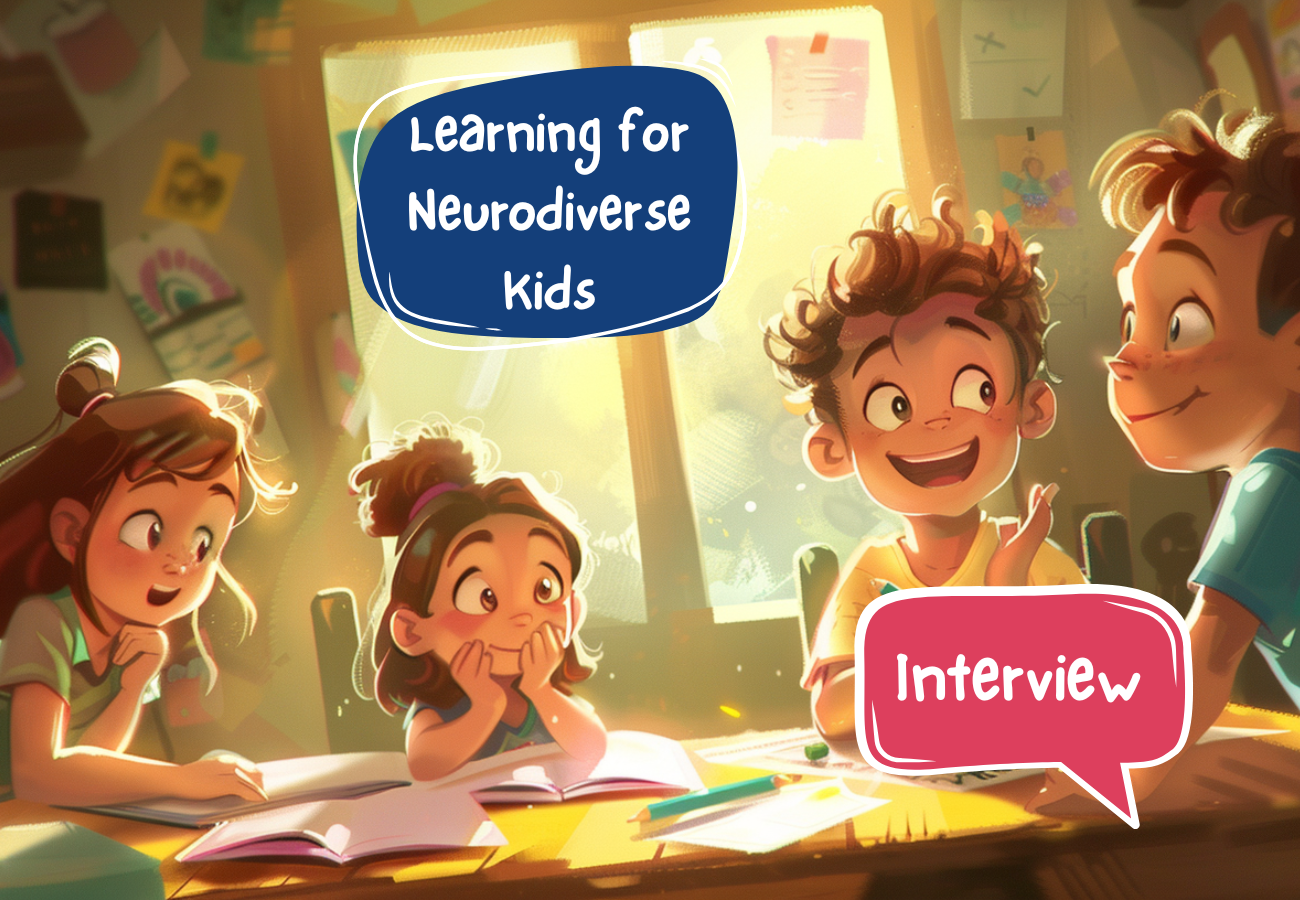
Creating Joyful Learning for Neurodiverse Kids: A Homeschooling Mom’s Journey with Alicia Ortego Books
A New Path in Education We always love hearing how our books support children and parents around the world. Recently, we spoke with a mom of three neurodivergent boys and the founder of Backyard Academy. Every day, she looks for creative ways to approach learning and parenting, and she shared with us how Alicia Ortego’s […]
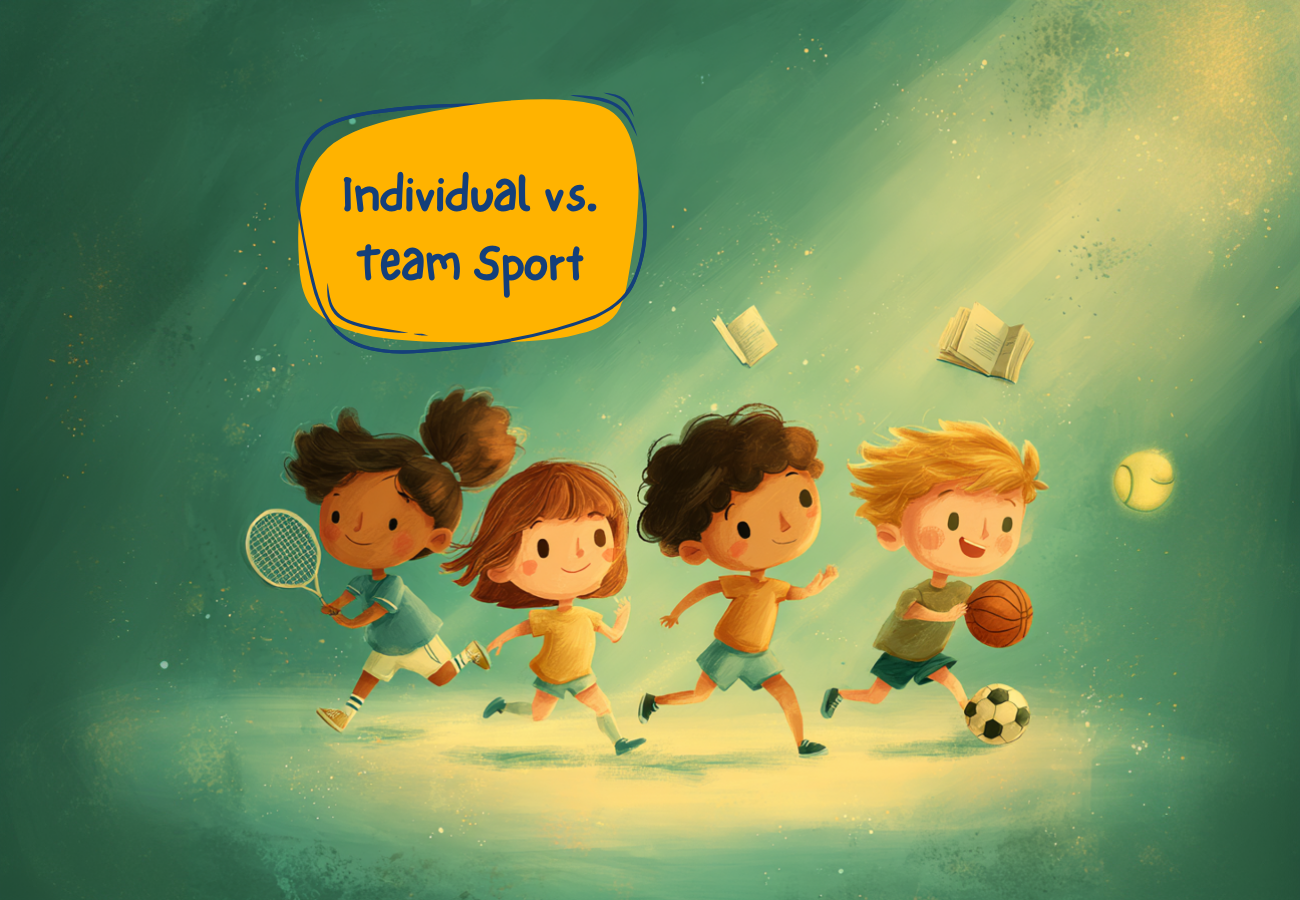
Individual vs. Team Sport Activities for Your Kids: Pros and Cons
Helping children stay active and healthy often starts with sports. But deciding between individual or team sports can be tricky. Each type offers unique experiences and developmental benefits, but also has potential drawbacks. Understanding the differences can help you make informed choices based on your child’s personality, interests, and abilities. What Are Individual Sports? Individual […]
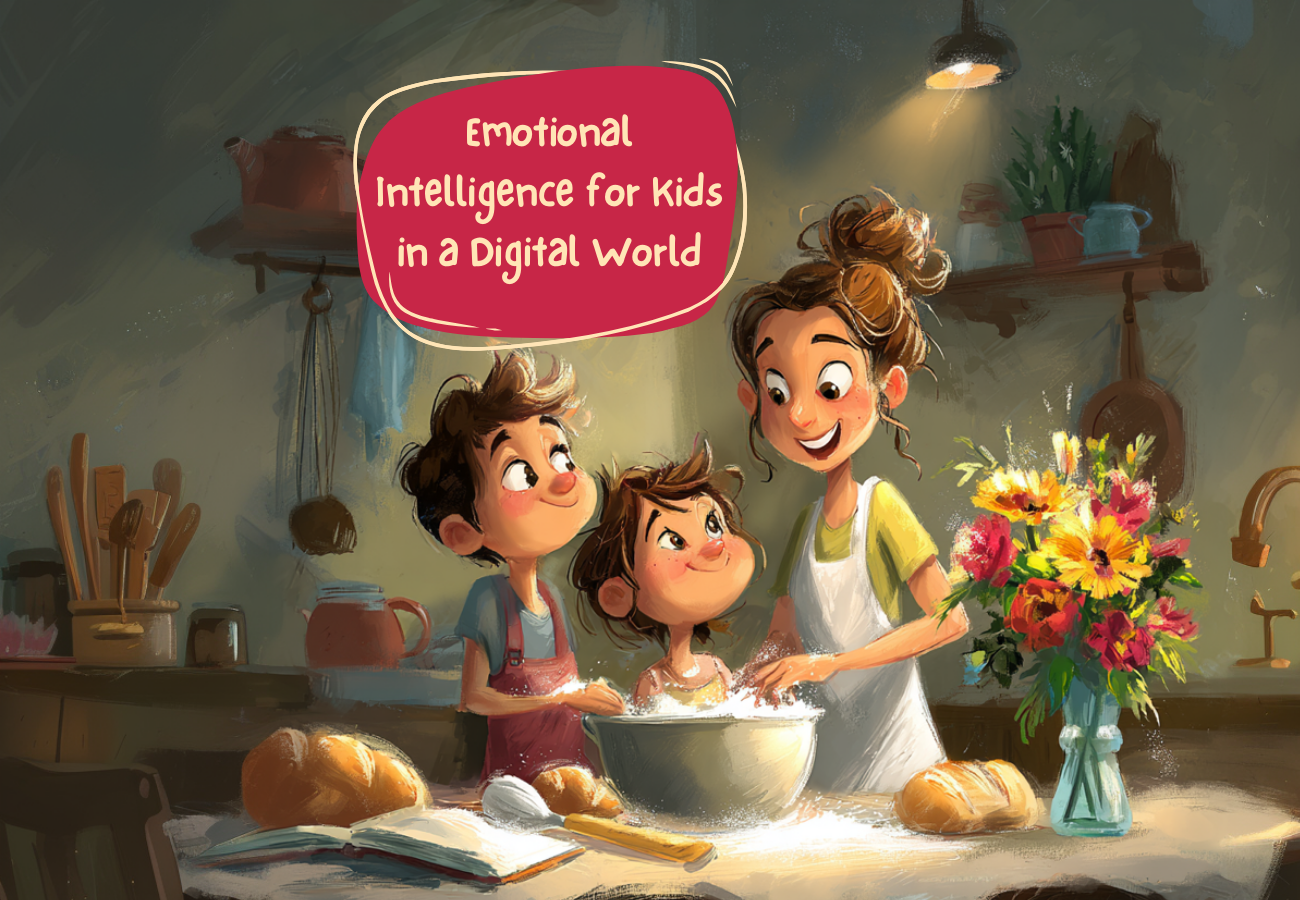
How to Nurture Your Child’s Emotional Intelligence in the Digital Age
Raising children today is nothing like it was in the 90s. Children in the 90s spent the majority of their time playing outdoors with neighbors or going to the local library or the beach. In that era, screen time mostly centered around TV, cable, or video games. But things are quite different in 2025. Kids […]



